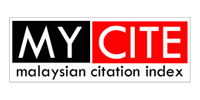Taguchi Method for p-MOS Threshold Voltage Optimization with a Gate Length of 22nm
DOI:
https://doi.org/10.58915/ijneam.v16i1.277Keywords:
Taguchi, Statistical, Graphene, Optimization, p-typeAbstract
This paper describes the virtual design of a 22nm gate length p-type metal oxide semiconductor, PMOS. Silvaco, TCAD tools were used to fabricate the device design and to characterize the device’s electrical properties. Fixed field scaling rules are applied to obtain the transistor’s electrical parameters set by ITRS 2013. In order to take the challenges that arise in the fabrication of nano-sized transistors and enhance their performance, advanced and novel technologies are applied. Using the statistical modelling of L9 Taguchi methodology, the development process is primarily focused on the tool's edge voltage. Four parameters have been divided into three distinct steps in order to conduct nine different experiments. The final confirmation result indicates that VTH is closer to the nominal value -0.206V following optimization techniques. This matches the ITRS 2013 requirements for high performance. This paper examines the design of a p-MOS double gate containing a layer of graphene as it is known to have a high mobility value.

















